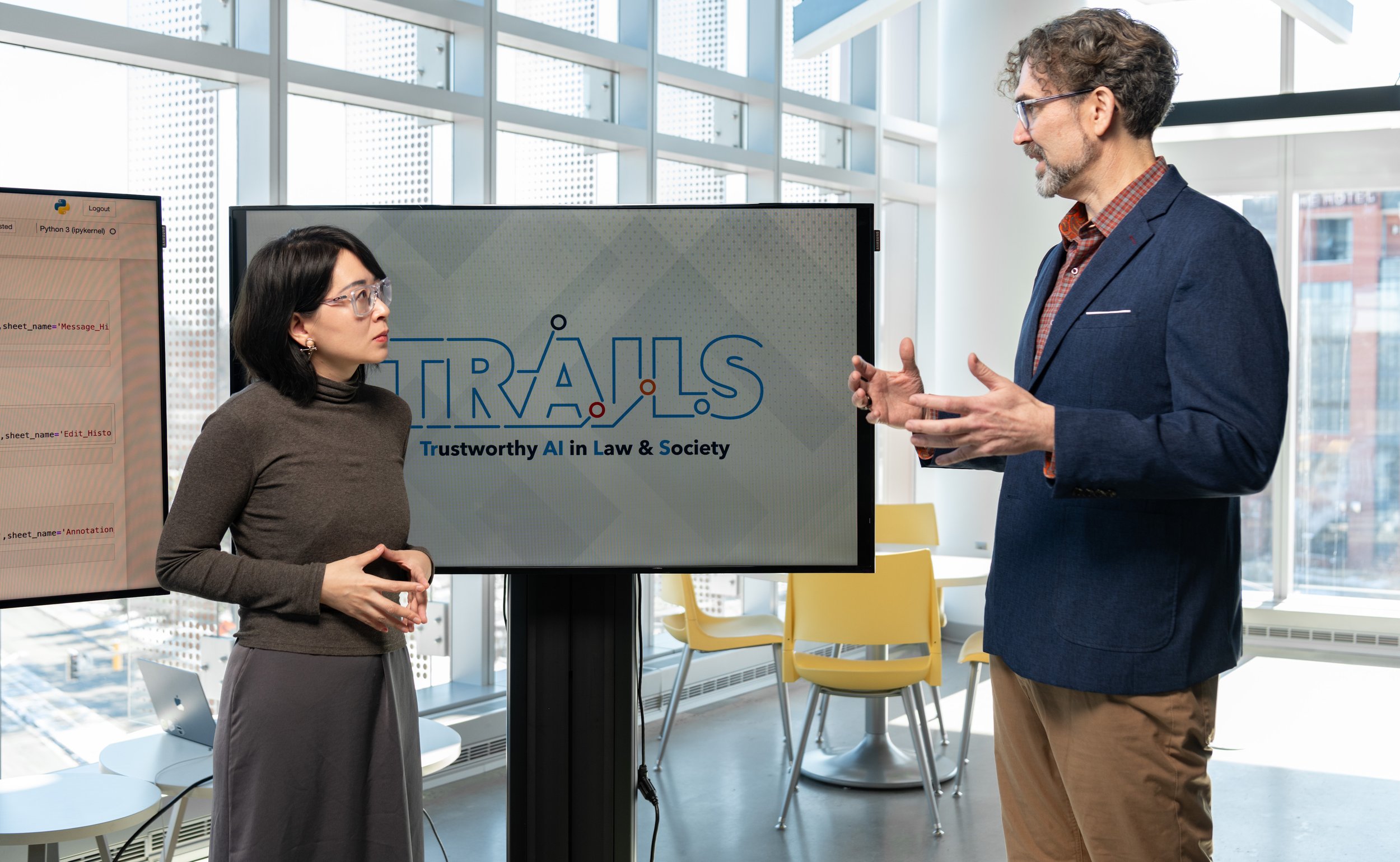
Adam J. Aviv
Associate Professor of Computer Science
George Washington University
Adam J. Aviv is an associate professor of computer science at George Washington University. He has broad research interests in the areas of computer security, cybersecurity and privacy, including topics such as network security, mobile security, applied cryptography, and usable security and privacy. Aviv also leads the George Washington Usable Security and Privacy Lab.
Area of Expertise: AI Privacy
-
Balash, D. G., Fainchtein, R. A., Korkes, E., Grant, M., Sherr, M., & Aviv, A. J. (2023). Educators’ Perspectives of Using (or Not Using) Online Exam Proctoring. ArXiv preprint arXiv:2302.12936.
Abstract: The onset of the COVID-19 pandemic changed the landscape of education and led to increased usage of remote proctoring tools that are designed to monitor students when they take assessments outside the classroom. While prior work has explored students’ privacy and security concerns regarding online proctoring tools, the perspective of educators is under explored. Notably, educators are the decision makers in the classrooms and choose which remote proctoring services and the level of observations they deem appropriate. To explore how educators balance the security and privacy of their students with the requirements of remote exams, we sent survey requests to over 3,400 instructors at a large private university that taught online classes during the 2020/21 academic year. We had n = 125 responses: 21% of the educators surveyed used online exam proctoring services during the remote learning period, and of those, 35% plan to continue using the tools even when there is a full return to in-person learning. Educators who use exam proctoring services are often comfortable with their monitoring capabilities. However, educators are concerned about students sharing certain types of information with exam proctoring companies, particularly when proctoring services collect identifiable information to validate students’ identities. Our results suggest that many educators developed alternative assessments that did not require online proctoring and that those who did use online proctoring services often considered the tradeoffs between the potential risks to student privacy and the utility or necessity of exam proctoring services.
-
Balash, D. G., Kim, D., Shaibekova, D., Fainchtein, R. A., Sherr, M., & Aviv, A. J. (2021). Examining the Examiners: Students’ Privacy and Security Perceptions of Online Proctoring Services. arXiv:2106.05917v1
Abstract: In response to the Covid-19 pandemic, educational institutions quickly transitioned to remote learning. The problem of how to perform student assessment in an online environment has become increasingly relevant, leading many institutions and educators to turn to online proctoring services to administer remote exams. These services employ various student monitoring methods to curb cheating, including restricted (“lockdown”) browser modes, video/screen monitoring, local network traffic analysis, and eye tracking. In this paper, we explore the security and privacy perceptions of the student test-takers being proctored. We analyze user reviews of proctoring services’ browser extensions and subsequently perform an online survey (n = 102). Our findings indicate that participants are concerned about both the amount and the personal nature of the information shared with the exam proctoring companies. However, many participants also recognize a trade-off between pandemic safety concerns and the arguably invasive means by which proctoring services ensure exam integrity. Our findings also suggest that institutional power dynamics and students’ trust in their institutions may dissuade students’ opposition to remote proctoring.
-
Farke, F. M., Balash, D. G., Golla, M., Dürmuth, M., & Aviv, A. J. (2021). Are Privacy Dashboards Good for End Users? Evaluating User Perceptions and Reactions to Google’s My Activity. 30th USENIX Security Symposium.
Abstract: Privacy dashboards and transparency tools help users review and manage the data collected about them online. Since 2016, Google has offered such a tool, My Activity, which allows users to review and delete their activity data from Google services. We conducted an online survey with n = 153 participants to understand if Google's My Activity, as an example of a privacy transparency tool, increases or decreases end-users' concerns and benefits regarding data collection. While most participants were aware of Google's data collection, the volume and detail was surprising, but after exposure to My Activity, participants were significantly more likely to be both less concerned about data collection and to view data collection more beneficially. Only 25% indicated that they would change any settings in the My Activity service or change any behaviors. This suggests that privacy transparency tools are quite beneficial for online services as they garner trust with their users and improve their perceptions without necessarily changing users' behaviors. At the same time, though, it remains unclear if such transparency tools actually improve end user privacy by sufficiently assisting or motivating users to change or review data collection settings.




